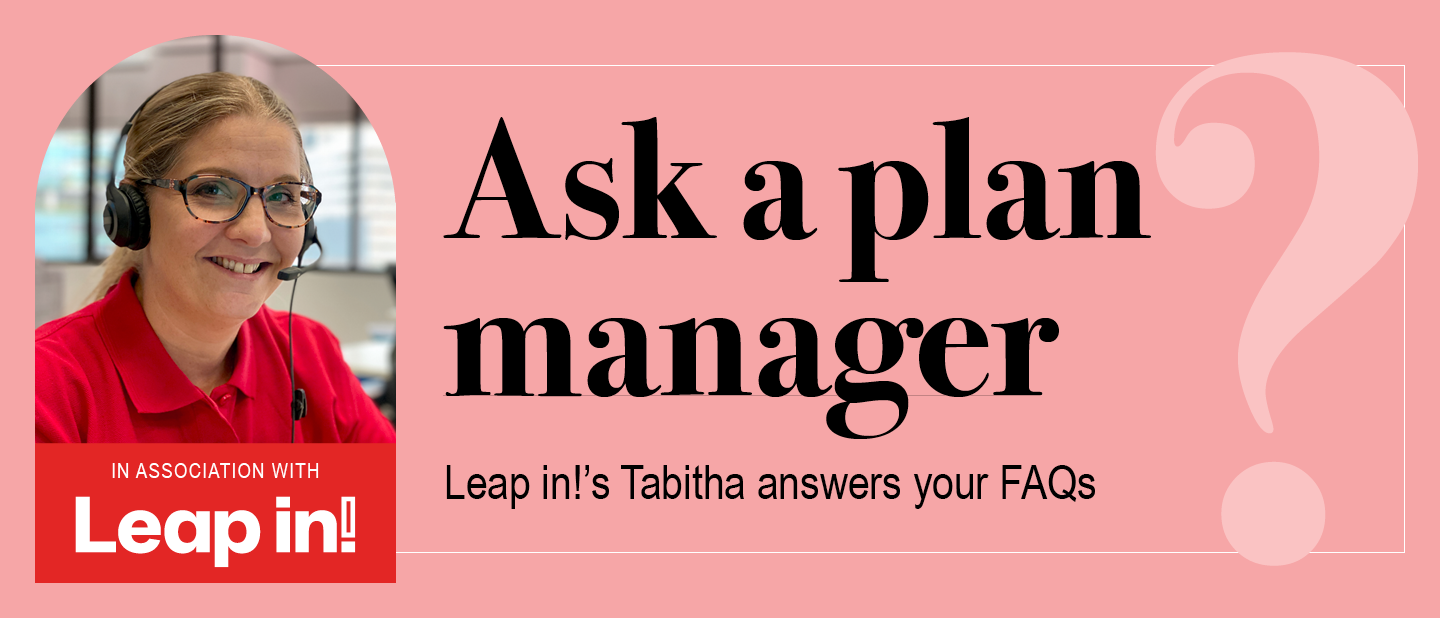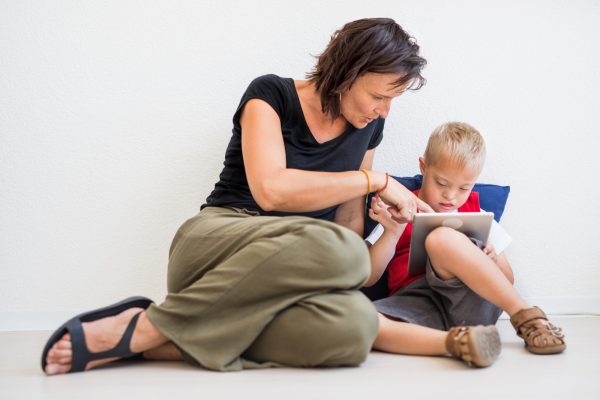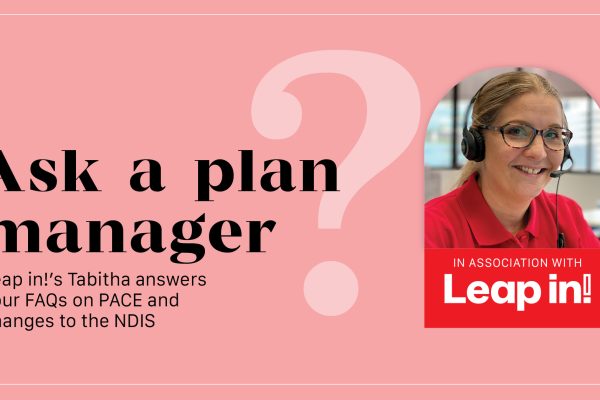
Ask a Plan Manager: the Early Childhood Approach, early connections and more
Sponsored content
Here at Leap in! we understand that navigating some of the key NDIS early childhood terminology, roles and approaches can be tricky! There’s also been a lot of changes recently, which can be difficult to keep track of. Today, we ask Leap in! plan manager Tabitha to unpack the early childhood approach, early connections and more.
What is the early childhood approach?
The NDIS early childhood approach (ECA) provides support to children aged under nine with developmental delay or disability to get the best possible start in life.
The ECA aims to connect families with the right supports and services so children develop skills to take part in everyday activities and build strong foundations for their future. Children don’t need a diagnosis or to apply for the NDIS to access supports under the early childhood approach. Some children and their families can access early connections and supports without applying for the NDIS. Others will be assisted with an NDIS access request, depending on individual needs.
What is an early childhood partner?
Early childhood partners (ECPs) are local professional organisations the NDIS funds to deliver the early childhood approach. They work with children younger than 6 with developmental concerns and younger than 9 with disability and their families.
Early childhood partners work to understand a child’s needs and will provide connections to supports and services that best meet the child’s needs. These supports and services are called ‘early connections’.
Providing support as early as possible in a child’s development is the ideal way to ensure they achieve the best possible outcomes throughout their life.
ECP teams often include occupational therapists, psychologists, physiotherapists, speech therapists and other relevant allied health professionals.
What recent changes were made to the early childhood approach?
The NDIS early childhood approach previously provided support to children under the age of 7 and their families. Since 1 July 2023, there have been changes to expand the age range to include children under the age of 9. This transition will take place over the next 2 years.
The extension of the age range ensures that children and their families will receive continued support from an early childhood partner (ECP) during and after their transition to primary school.
The specific details of the transition are as follows.
- Children who are already on the NDIS and turn 7 after 1 July 2023 will now remain with their early childhood partner until they turn 9 if they require support up to this age.
- Children under the age of 9 who access the NDIS will now be supported by an early childhood partner (rather than a local area coordinator).
- Children younger than 6 don’t need a diagnosis, and children will be eligible to stay with an ECP if they are younger than 9 and have a diagnosed disability.
What can I expect from an early childhood partner?
An ECP will initially meet with you and your family and chat about the following:
- Any concerns about your child’s development
- Priorities and goals for the child
- How you currently support the child and where more support may be needed
- Information from available screening tools, assessments or reports
- Any early childhood supports currently received and how well they meet your needs
An ECP uses observation in familiar settings to understand how the child plays, communicates and helps take care of themselves. They may also use assessment tools to learn more about the child’s development.
This information is used to assess the child’s support needs and determine the next steps.
What are ‘early connections’?
Early connections are supports and information provided to children under nine and their families to develop capacity and maximise the child’s opportunities.
Children do not need a diagnosis to be eligible for early connections and supports can be provided without accessing the NDIS. These can include connections to:
- Mainstream (government) and community services such as early childhood services, health services and family support services
- Practical information that is relevant to the child’s development
- Other families
- Supports
- Applying to the NDIS
- Accessing early connections through early childhood partners
If you have concerns about your child’s development, the NDIS recommends speaking first to a health or education professional such as your GP, occupational therapist, child health care nurse or early childhood educator.
They can put you in contact with an early childhood partner (ECP), who has experience and clinical expertise in working with young children with developmental concerns or disability and their families. You can also contact an ECP yourself. No referral or diagnosis is needed.
DO YOU HAVE A QUESTION YOU’D LIKE US TO ANSWER IN THE NEXT EDITION OF SOURCE KIDS? WE’D LOVE TO HEAR FROM YOU. SEND YOUR QUESTION TO [email protected]
Call Leap in! on 1300 05 78 78 or email [email protected] to speak with a team member experienced in the NDIS and early childhood approach.







